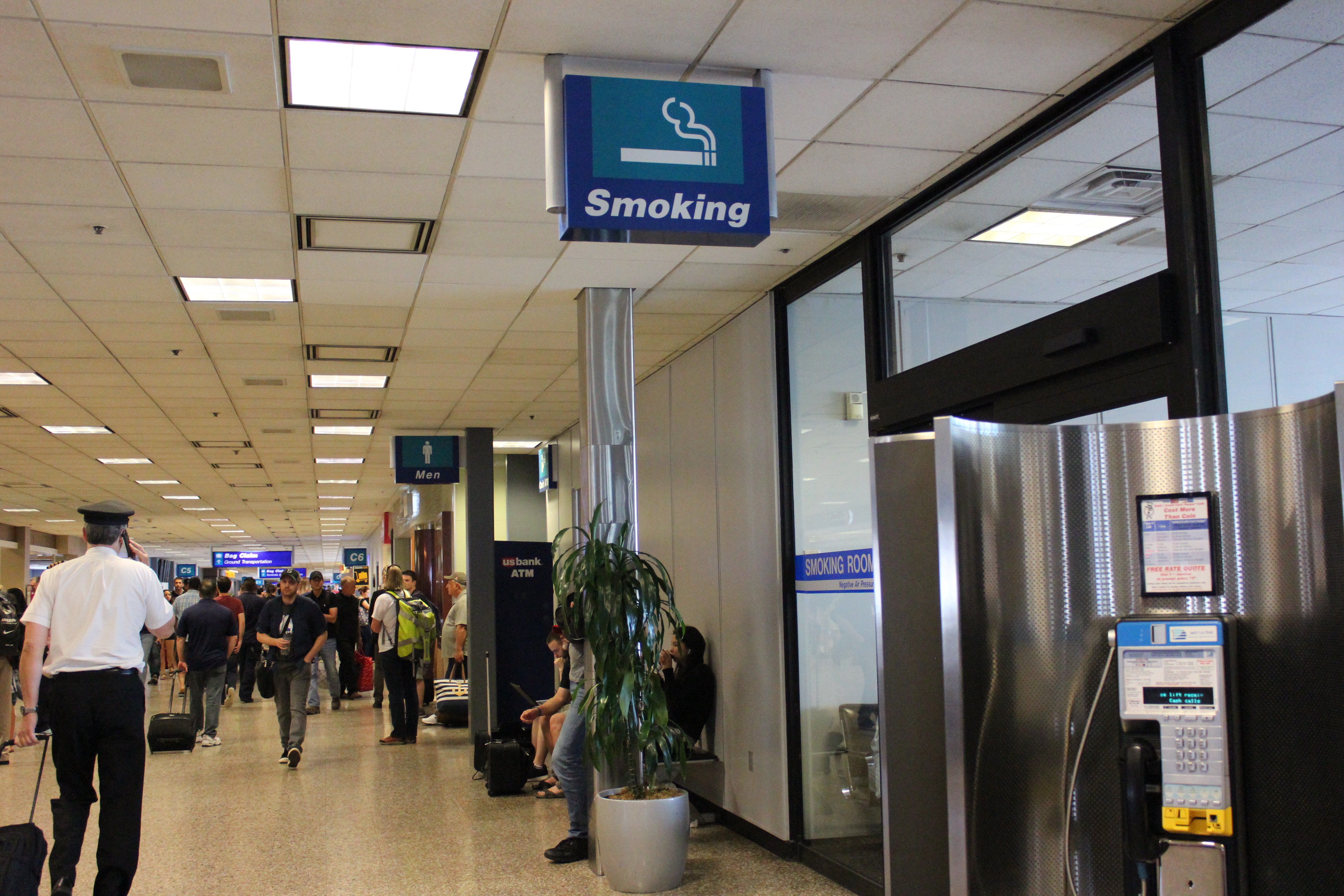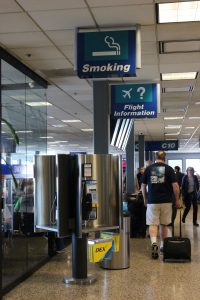
The recent announcement that Salt Lake City International Airport is eliminating its smoking rooms is seen as a big win for BYU public health students.
“We went with the American Cancer Society to the Capitol when they were voting on the issue,” said Maren Parsons, a BYU senior and public health major. “We explained that cancer effects everybody and why we think this would benefit Utah.”
In their methods of health promotion class during Winter Semester, students researched people’s opinions on smoking rooms, whether the ventilation in smoking rooms was effective and what other airports have done in the past with regard to these smoking rooms. Then they teamed up with the American Cancer Society Cancer Action Network (ACS-CAN) in order to make a difference.
Parsons said she and her classmates were excited to help ACS-CAN in its efforts to lobby for the elimination of smoking rooms in the Salt Lake airport, because it is a small group with few paid employees.
After extensive research, the students were well prepared to talk to state representatives about the effects of smoking rooms. They met up with constituents from around the state in February and talked to the senators and representatives about the dangers of smoking in relation to airport smoking rooms.

The rooms are ventilated, but after doing research, Parsons doesn’t think the ventilation works as well as it’s supposed to.
“According to the American Cancer Society, the ventilation isn’t that effective,” she said. “The employees who clean the room are also effected by the smoke in the air and in the upholstery. It doesn’t just effect the people who are smoking.”
Parsons said the bill to remove the smoking rooms from the Salt Lake City airport had failed by one vote the day before their visit. The group’s goal was to gauge the opinions of the different representatives and senators so they could inform the ACS-CAN who was on the fence. They also talked to these representatives about why the bill was important to them as constituents and why they thought it would be beneficial to the health of airport travelers.
Parsons believes lobbying with the constituents made a big impact on the legislators. “We were with their constituents and they would say, ‘Oh yeah, we should vote for that because we’re supposed to represent you,'” Parsons said. The bill was revoted and passed in late February.

The Salt Lake City airport will now be phasing out the smoking rooms by the end of the year. Airport spokesperson Nancy Volmer said they are doing all they can to make the transition as easy as possible. “We’re phasing them out and we’re looking at where they’re located,” Volmer said. “The last one closed will be in the center concourse so people will at least have a central point to go to. At least they can plan ahead.”
Smokers in the airport will have six months to adapt to the new plan. Once the rooms are gone, people will be required to exit if they want to smoke and must pass through security again to re-enter. Volmer said she is surprised there hasn’t been more backlash to the announcement, but would not be surprised to see more in the future.
Volmer also said the main reason for closing the rooms is health concerns, but the extra space will be used to accommodate travelers, as the airport is already over capacity.




